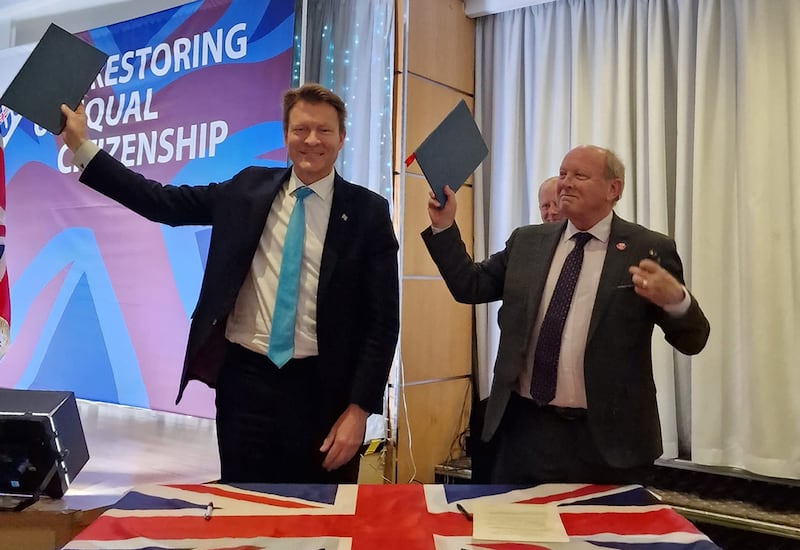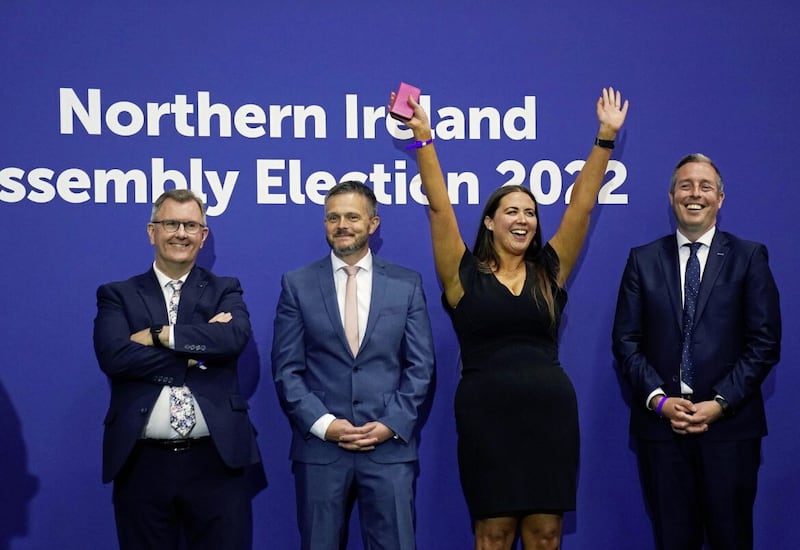The DUP had begun to hope that the deal to restore the assembly a few weeks ago had bedded in well enough to secure it from serious political/electoral threat. That is no longer the case.
Jeffrey Donaldson – who had taken possession of it and then pushed it through the governing parts of the party – is no longer leader. Gavin Robinson has replaced him as an interim, but there may well be a leadership contest.
That provides his internal critics with an unexpected moment: a moment in which they might replace him with one of their own.
As the outworkings of the deal, particularly the parts to do with securing, safeguarding and strengthening the union appear to be less robust than first suggested, there are MLAs and party members who worry that the new TUV/Reform UK pact could hurt the party.

The question now is, are they worried enough to back a new leader who will distance himself from the deal – even to the extent of collapsing the assembly again?
But does that leader actually exist? There certainly isn’t a long list of potential candidates, let alone one who could muster the sort of anti-deal majority that a new leader would need this close to a general election.
- Jeffrey Donaldson: Shocking charges plunge DUP into disarray - The Irish News viewOpens in new window
- Analysis: The DUP will hold together but leadership contest may lead to a challenge from the anti-deal factionOpens in new window
- Donaldson controversy unlikely to destabilise freshly-restored StormontOpens in new window
There is also a fear in some DUP quarters that collapsing the assembly wouldn’t deliver any new changes or remove the Windsor Framework in its entirety; and a deeper fear, too, that if the assembly goes down again it won’t ever come back.
Personally, I’m not persuaded that the party would get away with collapsing the assembly on the back of an opportunity linked to very serious accusations and charges levelled at its previous leader.

The other thing which would concern them is the possibility that Donaldson might choose to resign as an MP. That might not, this close to a general election, trigger a by-election, but it certainly shouldn’t, considering the circumstances, be ruled out. And if he stays on – and at this moment his membership of the party is suspended – it creates the problem of how effective he would be. There’s no easy route out of that dilemma, although I think the government would also be keen to avoid a by-election, because it doesn’t want the anti-deal sections of unionism to do much better than expected.
The DUP won’t want a by-election either, not least because it doesn’t want to trigger a battle it probably can’t win and face the additional problem of having to find a candidate who can hold a seat against huge odds. But leaving him in place keeps a focus on him, a focus the party doesn’t want to deal with.
There are no precedents in Northern Ireland politics for dealing with this sort of situation. So, the DUP has no idea of how its voting base will respond
There are no precedents in Northern Ireland politics for dealing with this sort of situation. Which is, in itself, another problem. So, the DUP has no idea of how its voting base will respond.
Yes, they will be shocked, as is just about every other person who has heard the news, but whether that shock will translate into lost votes for the party is unknown. Will the voters see this as a Donladson-only issue, or will they see it as a wider reflection on the party? At this point nobody knows.
But at the heart of this story are ordinary people. And sometimes in the rush to get to grips with the big, unexpected story, we forget about that and forget about them.




